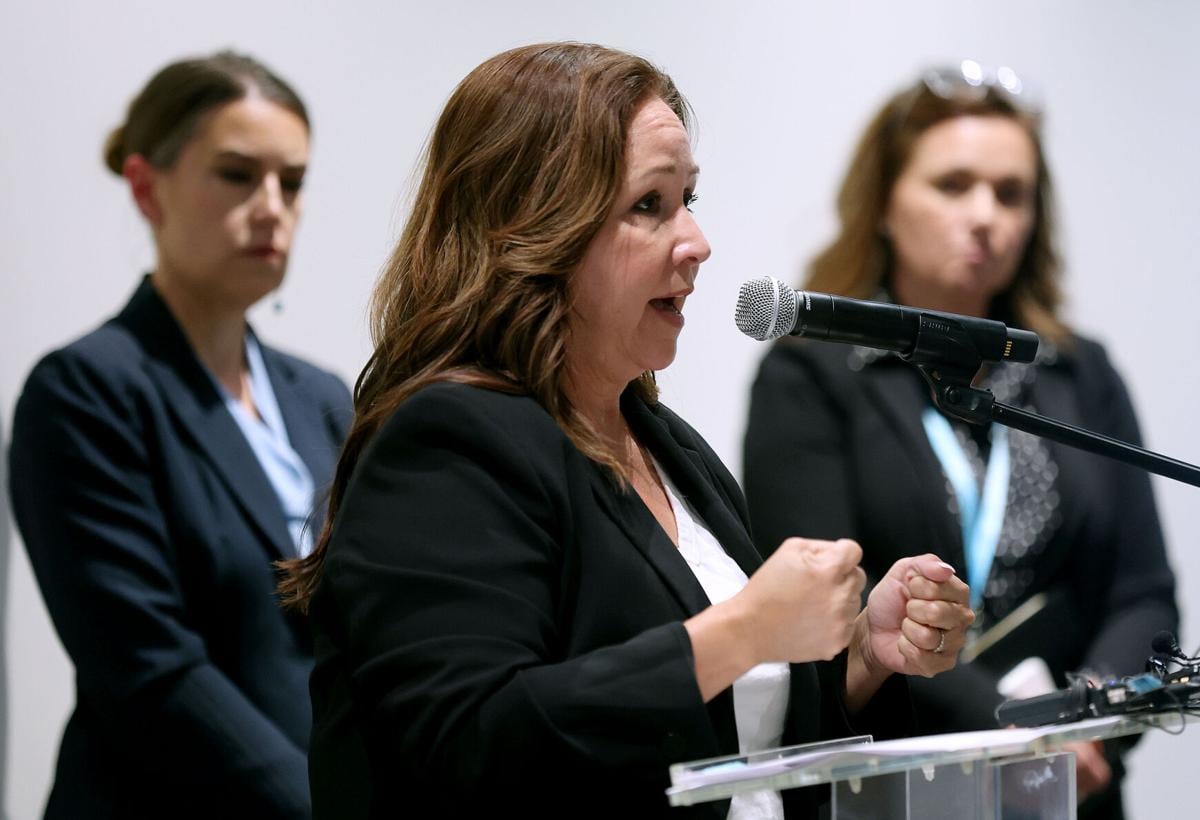Pima County’s approach to addressing homelessness here will not change despite the recent Supreme Court ruling that empowers states and cities to enact laws designed to keep people from sleeping on the street, two top county officials say.
“The United States Supreme Court reversed earlier decisions and said nevertheless, a person caught sleeping outside could be considered to have intentionally be trespassing, even where we know we don’t have the services in-place to support them,” Pima County Attorney Laura Conover said Tuesday in a news conference with Pima County Supervisor’s Chair Adelita Grijalva.
“I want to be very, very clear: it’s wrong from a moral, and ethical, and humane standpoint,” Conover said of the ruling. “As a community, we will not dehumanize people.”
In a split decision, the U.S. Supreme Court ruled Friday that laws banning camping on public property do not violate the Eighth Amendment’s ban against “cruel and unusual punishment.” The court also said such laws do not making homelessness a crime.
The court overturned a decision by the 9th Circuit Court of Appeals, which had blocked the city of Grants Pass, Oregon, from enforcing anti-camping laws in a precedent for all Western states, including Arizona.
Conover said that this ruling is “unacceptable for a number of reasons,” and that arresting homeless people for sleeping outside would be “demoralizing” on local law enforcement who would be tasked with doing so.
Additionally, Conover said, the court decision is also “completely unfunded,” and does not have a “single dollar” of funding attached to it to address the homelessness crisis in cities and counties across the Western states.
“It’s false to suggest that we can arrest our way out of the problem of homelessness, that we can arrest our way out of substance abuse disorder (and mental health) illnesses,” she said. “The jail is not a hospital.”
Pima County will continue to work in-collaboration with the city, nonprofits and other jurisdictions to address homelessness, Grijalva said.
“Pima County (has) a long-standing policy to provide assistance and resources to those who find shelter in an encampment and work to find real locations before requiring people to leave an area,” Grijalva said. “The Supreme Court’s ruling will not affect our efforts to continue seeking humane and just ways to work with individuals facing this issue.”
There are about 1,200 people who are homeless here and fewer than 800 shelter beds available within the county, said Jen Darland, director of the county’s Office of Housing Opportunities and Homeless Solutions, citing the most recent estimates. Darland noted that both estimates fluctuate on a day-to-day basis.





